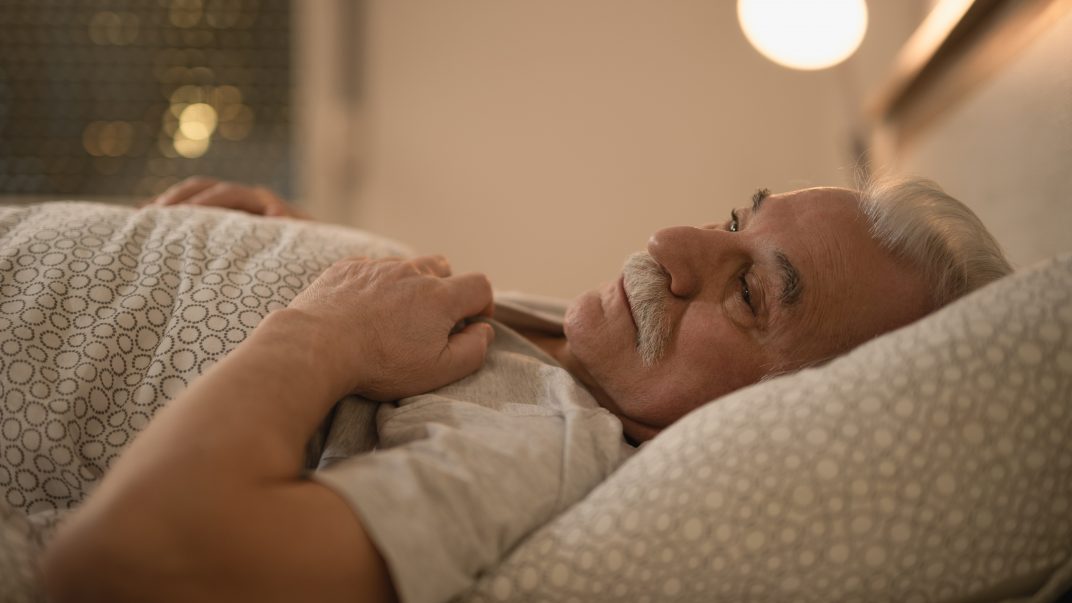How Sleep Changes with Age

As we age, our sleep patterns change, and getting quality rest can become more difficult. But sufficient sleep is crucial for both physical and mental health, and it can significantly impact your loved one’s quality of life, especially for those who wish to age in place safely and comfortably.
Why Sleep Matters for Seniors
Sleep is just as important for seniors as it is for younger adults. During sleep, the body repairs itself, strengthens the immune system, and consolidates memories. A lack of sleep can lead to a number of health problems, including:
- Increased risk of chronic diseases: Studies have shown a link between poor sleep and an increased risk of heart disease, stroke, diabetes, and even Alzheimer’s disease.
- Cognitive decline: Sleep is essential for memory consolidation and learning. When sleep is disrupted, it can impair cognitive function and make it harder for seniors to think clearly and focus.
- Mood problems: Poor sleep can contribute to anxiety, depression, and irritability.
- Falls and accidents: Seniors who don’t get enough sleep are more likely to experience daytime fatigue and falls.
According to the Canadian Sleep Society, adults aged 18-64 need 7-9 hours of sleep per night, and adults 65 and over need 7-8 hours. While the total amount of sleep needed may decrease slightly with age, the quality of sleep becomes even more important for seniors aging in place.
How Aging Affects Sleep
As we age, several factors can contribute to changes in sleep patterns:
- Shifts in circadian rhythms: The natural sleep-wake cycle, regulated by the body’s internal clock, can become disrupted with age. This can lead to difficulty falling asleep at night and waking up earlier in the morning.
- Changes in sleep architecture: Sleep architecture refers to the different stages of sleep we cycle through during the night. Seniors tend to spend less time in deep sleep, the most restorative stage, and more time in lighter stages of sleep. This can lead to feelings of unrefreshing sleep even after a full night in bed.
- Medical conditions: Many age-related health conditions, such as pain, arthritis, and sleep apnea, can disrupt sleep.
- Medications: Some medications can interfere with sleep.
- Changes in lifestyle: Retirement and changes in daily routines can disrupt sleep patterns.
Napping and Sleep in Seniors
Napping can be a helpful way to supplement nighttime sleep for some seniors aging in place. However, it’s important to be mindful of napping habits to avoid disrupting nighttime sleep further. Here are some tips for napping:
- Keep naps short: Aim for naps of 20-30 minutes to avoid entering deep sleep stages that can make it harder to fall asleep at night.
- Nap early in the day: Avoid napping late in the afternoon or evening, as this can delay bedtime.
- Create a consistent nap schedule: Napping at the same time each day can help regulate sleep patterns.
Tips to Help Your Loved One Get a Better Night’s Sleep
Creating healthy sleep habits can significantly improve your loved one’s sleep quality and support their aging in place goals. Here are some tips to try:
- Establish a regular sleep schedule: Go to bed and wake up at the same time each day, even on weekends.
- Create a relaxing bedtime routine: This could include taking a warm bath, listening to calming music, or reading a book.
- Make sure the bedroom is sleep-conducive: The bedroom should be cool, dark, and quiet.
- Limit screen time before bed: The blue light emitted from electronic devices can interfere with sleep.
- Encourage regular exercise: Physical activity can promote better sleep, but avoid strenuous workouts close to bedtime.
- Manage stress: Stress can disrupt sleep. Relaxation techniques such as deep breathing or meditation can be helpful.
- Ensure a healthy diet: Avoid heavy meals and caffeine close to bedtime.
- See a doctor if sleep problems persist: If your loved one is experiencing chronic sleep problems, it’s important to see a doctor to rule out any underlying medical conditions.
By prioritizing healthy sleep habits and creating a sleep-supportive environment, you can help your loved one age in place safely and comfortably. Getting enough quality sleep is essential for seniors’ physical and mental well-being, and it can significantly improve their overall quality of life. If you are concerned about your loved one’s sleep, talk to their doctor to rule out any medical conditions that could be contributing to sleep problems.